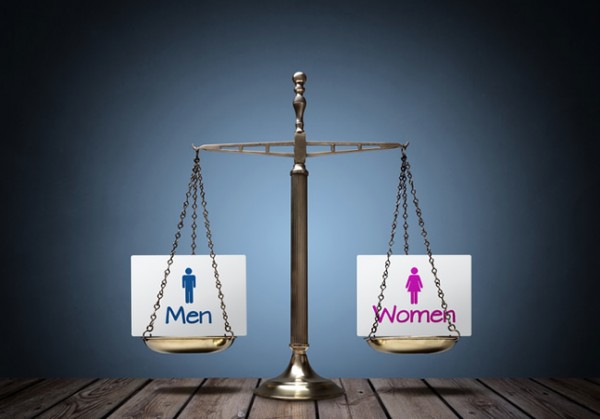
What can we do to bring an end to gender inequality? Photo: File.
This week saw International Women’s Day come and go, at a time when the country is preoccupied with the confronting reality of gender inequality as it plays out in Parliament House.
If there was ever any doubt that sexism and misogyny still exist, we only have to glance at our newspapers to be reminded of the ongoing perpetration of violence against women.
Amidst the commentary on what the correct course of action is for decision-makers in relation to the immediate events at play, there is renewed focus on the big picture. How do we end gender inequality – the driving force behind sexual assault, domestic violence, sexism and misogyny? How do we generate the right attitudes, beliefs and behaviours in future generations? How do we move from the ‘ambulance at the bottom of the cliff’ approach to one that prevents individuals toppling into the grips of victimhood in the first place?
Of course, gender equality is about more than preventing violence against women. It’s also about equal workforce participation, women in leadership, the economic security of single parents, supporting men to engage in caring responsibilities, inclusion and support for LGBTQIA+ members of our community, and much more.
These are important aspects of moving towards a more equal and just society for all, not just in terms of gender but also in terms of economic equality.
Arguably one of the most effective ways of achieving the goal of gender equality is to embed the values that underpin it in the younger generation. Role modelling equal gender roles that celebrate differences while also reinforcing a sense of equal rights and responsibilities is crucial to enabling the next generation to continue to make strides in creating a more equal society.
But gender norms and stereotypes can be embedded more deeply than we recognise, and unpicking them in order to properly role model equality is a harder task than it may seem.
In the context of work, family and parenting, it can be especially hard to determine what behaviours have political weight, and what we should accept as preferences or parts of our personalities that are individually defined.
For example, in the context of my heterosexual de facto relationship, I often take the lead on various domestic tasks like cleaning the bathrooms, organising the pantry, or managing the vet appointments for the pets. My partner also cleans, does laundry, cooks equally and contributes to the running of the house. But it can’t be denied that I perform many ‘traditionally feminine’ tasks, and that he does many of the more ‘masculine’ chores.
If we have children, will we be role modelling gender norms that reinforce more systemic inequalities in society? Or are the details of the roles we play in our relationships less relevant, and the level of choice we have in performing them more important?
When we really drill down into it, the core issue with gender roles isn’t only that we assign some tasks to men and some to women based on gender. It’s that we then ascribe a differing level of value to those tasks. That we undervalue traditionally female roles and attributes, in comparison to the male. And that when a person of one gender exhibits traits associated with the other, they are often ridiculed or ostracised as a result. Worse, that people with diverse gender identities are still discriminated against for their differences.
There is no doubt it’s a complex issue, and one that is so inextricably linked to individual preferences, attitudes and values that it’s inherently divisive. But without having these conversations, especially in the context of the revelations of the past few weeks, we may never find a meaningful way to end gender inequality and the negative behaviours associated with it for good.





















